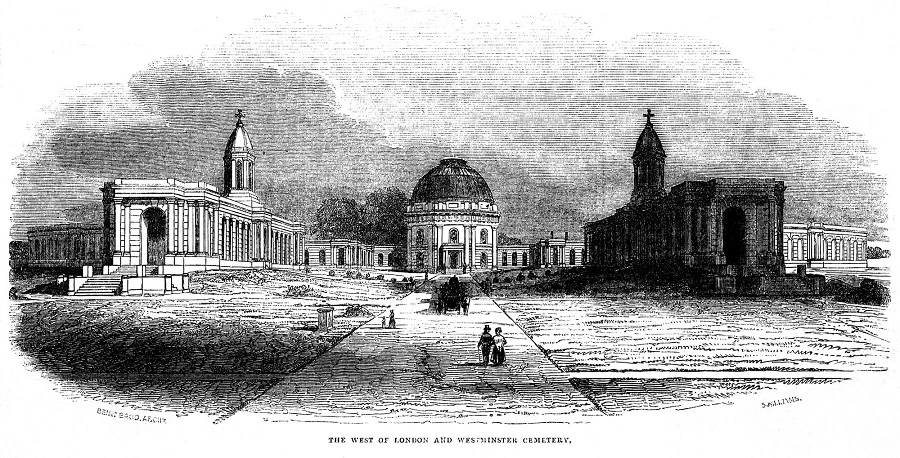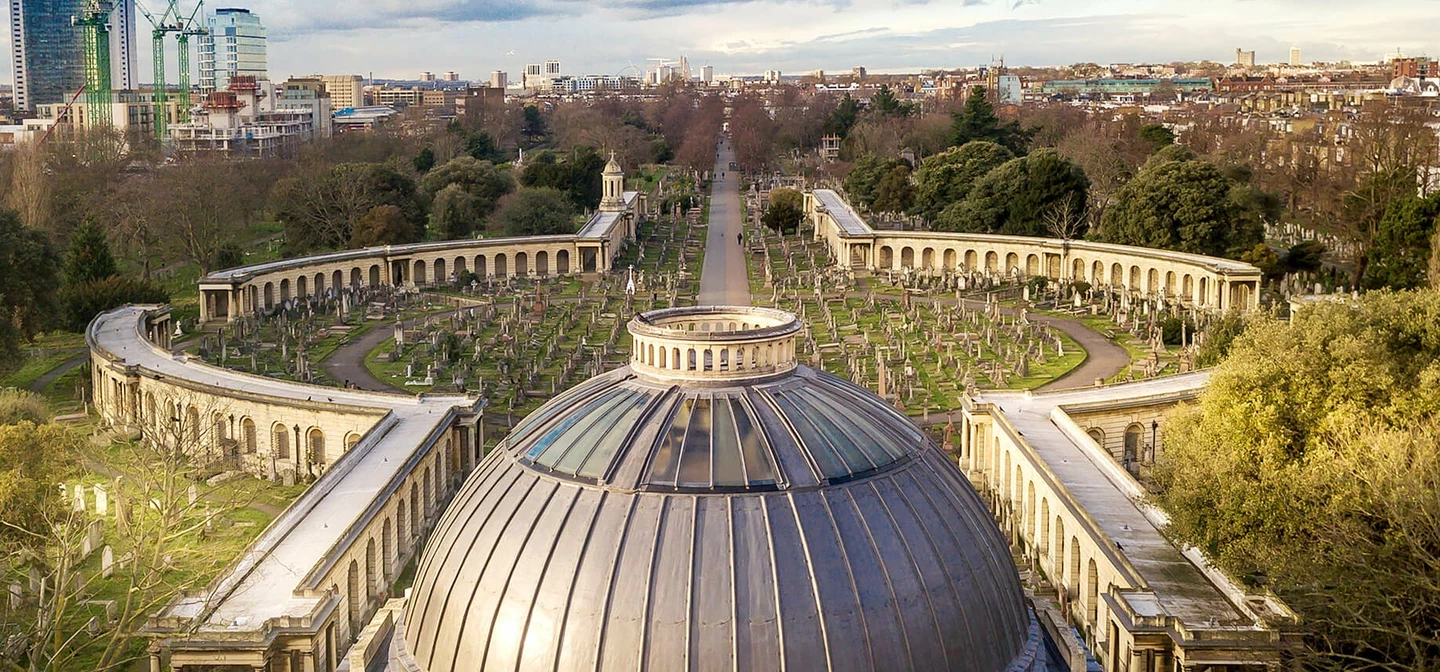
The Great Circle and Colonnades (1842)
'Cemeteries were a place to see, and be seen in’
The cemetery was a popular place for Victorian families to walk and picnic. It was free and open to everyone. As we do today, they strolled along the tree-lined Central Avenue to the spectacular Great Circle, with its forest of monuments and memorials.
The Great Circle engraving
The cemetery was a popular place for Victorian families to walk and picnic. It was free and open to everyone. As we do today, they strolled along the tree-lined Central Avenue to the spectacular Great Circle, with its forest of monuments and memorials.
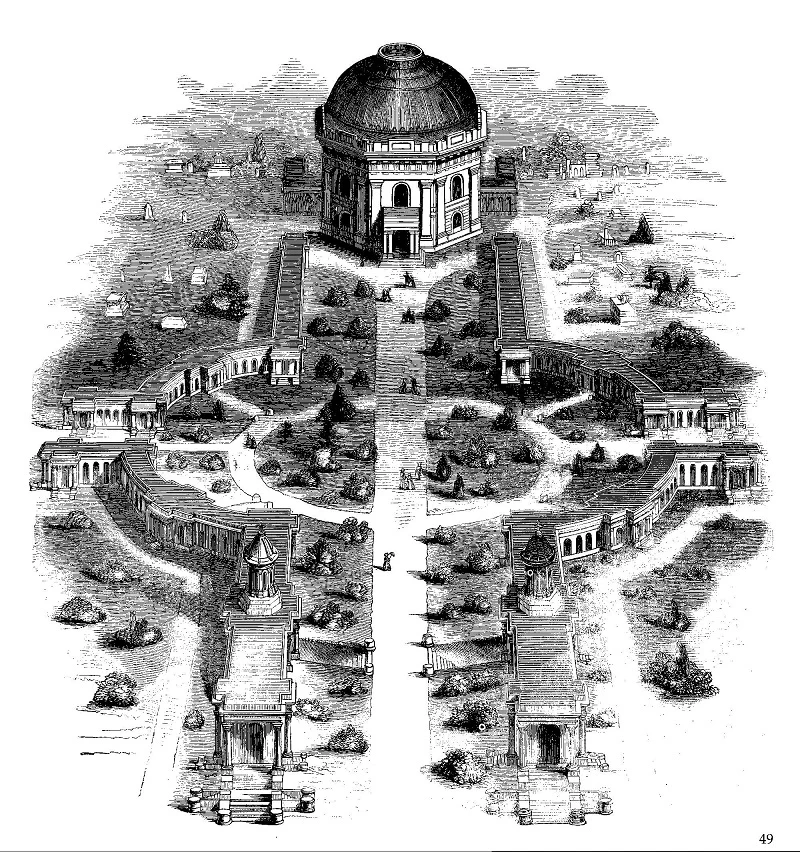
Great Circle – Highgate Cemetery engraving
The cemetery architect, Benjamin Baud, created elegant buildings and formal walkways to make the long flat site more interesting. The cemetery was built over a former market garden and brickworks, and had no natural features to work with.
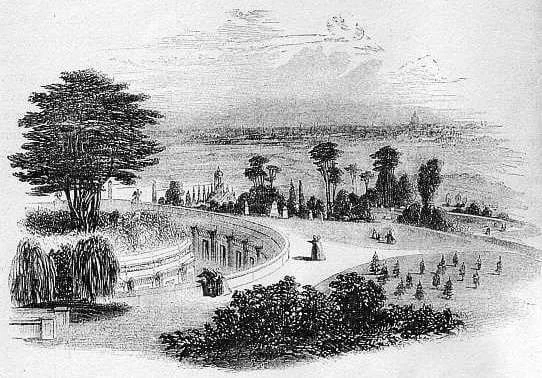
St Peter’s Basilica and Piazza, Vatican City in Rome
The Great Circle was the centrepiece of Baud’s vision. It’s said he was inspired by the piazza in front of St Peter’s Basilica in Rome.
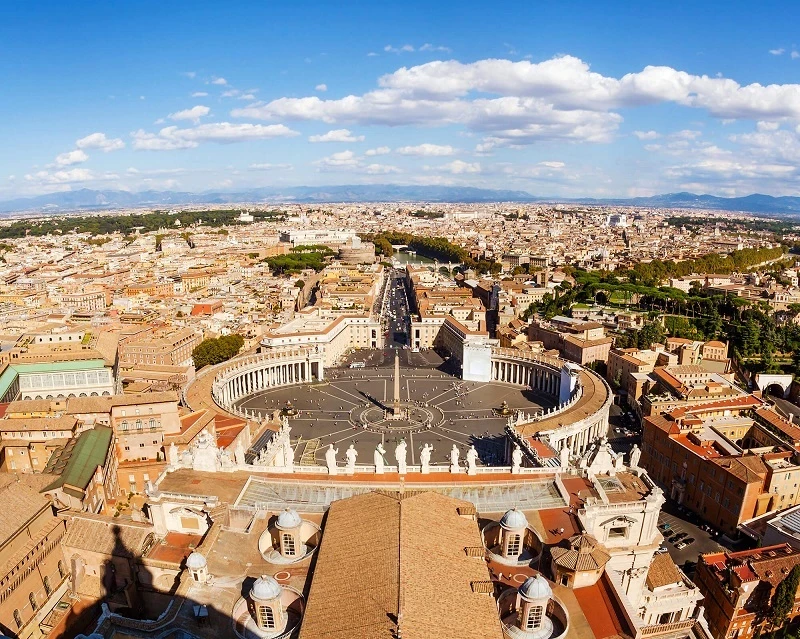
Blanche Macchetta and Great Circle
Baud had always imagined the Great Circle as an open and elegant grassy expanse. However, the cemetery’s priority was to make money and the plots in the Circle were very desirable. Baud’s grand design was abandoned, and wealthy families began filling the space with eye-catching monuments.
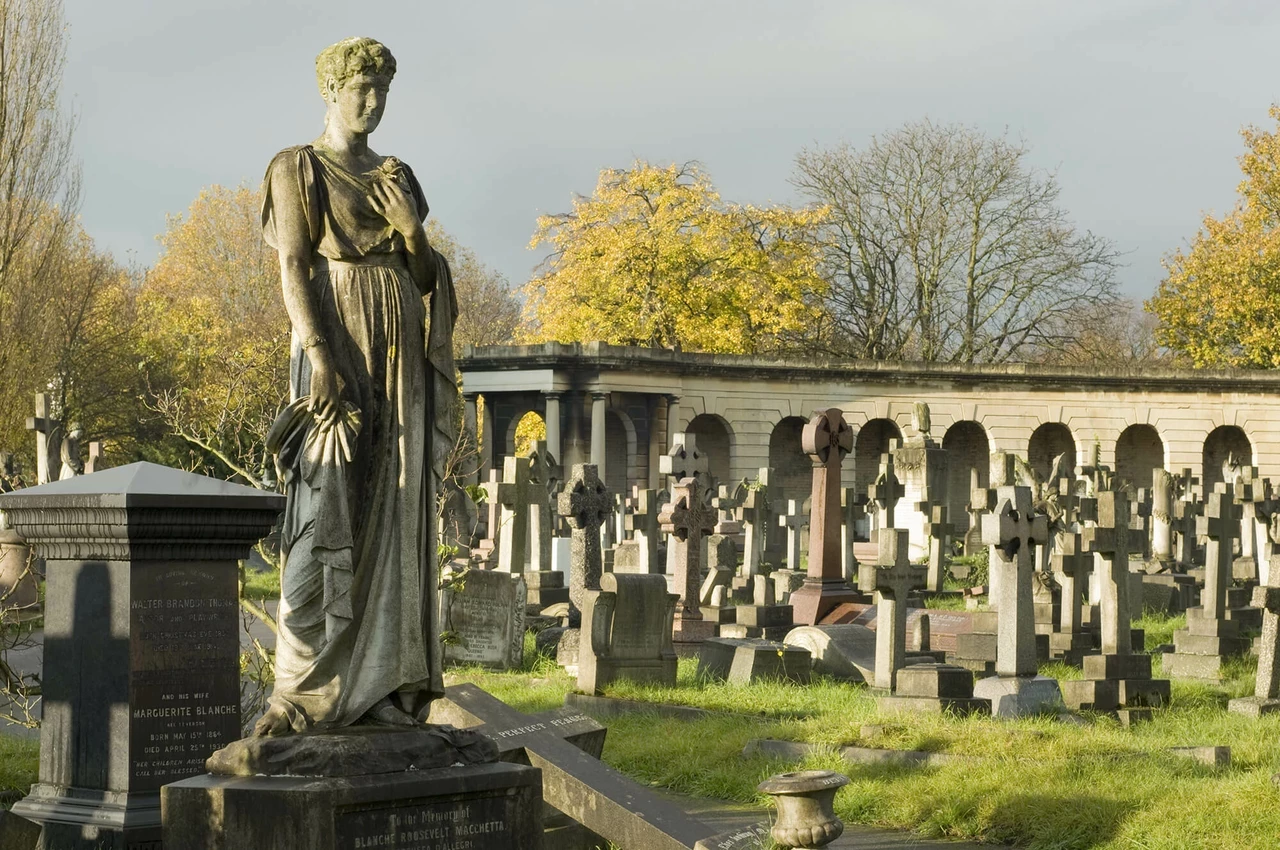
Great Circle crowded with graves
Baud’s vision for the Great Circle also included three chapels. The one you see today was originally reserved for the Church of England. He designed two smaller chapels, in the style of rectangular Greek Temples, to sit within the arcades. One was for Roman Catholics and the other for Nonconformists, but the cemetery company ran out of money before they could be built.
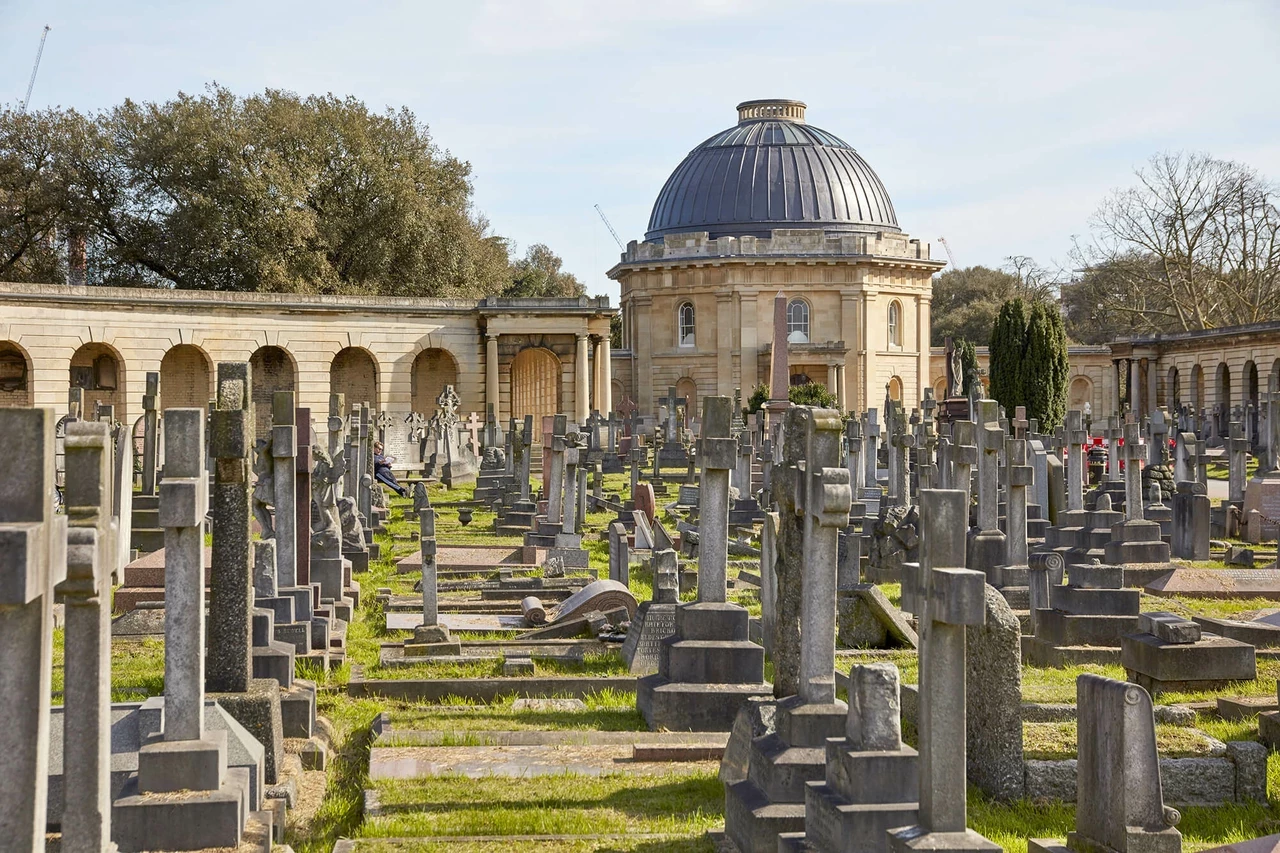
Brompton Cemetery 1843 engraving
Baud’s vision for the Great Circle also included three chapels. The one you see today was originally reserved for the Church of England. He designed two smaller chapels, in the style of rectangular Greek Temples, to sit within the arcades. One was for Roman Catholics and the other for Nonconformists, but the cemetery company ran out of money before they could be built.
